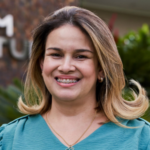As the region looks to the future, what strategies are senior agri-food leaders implementing to accelerate innovation throughout the supply chain in South America? We asked six speakers at the upcoming World Agri-Tech South America Summit to share their views.

Setting the scene, Carlos Eduardo Pellegrino Cerri, Associate Professor at ESALQ/USP comments on the ties between climate change and agricultural production: “The largest global greenhouse gas emissions come from burning fossil fuels. Agriculture, livestock and forestry can be part of the solution when it comes to mitigating global warming, as they can act both in reducing gas emissions and in increasing carbon sequestration in vegetation and soil. The World Agri-Tech event will address some concepts and definitions about this complex and intriguing topic, in addition to citing examples of good management practices that can help to mitigate global warming and consequent climate change.”

Sebastian Popik, Founding Partner, AQUA CAPITAL outlines that South America is in a unique position to deliver on its potential to be the world’s food basket, with new technologies and solutions disrupting the agri-food market and innovation ecosystem: “After years of groundwork, the agtech sector is seeing an acceleration never experienced before. Companies are gaining commercial scale, demonstrating business model feasibility and team competence, in a number of areas. In parallel, the start-up segment continues to accelerate with new, homegrown companies addressing real-life challenges in an ever-increasing array of areas. Geographic dispersion is augmenting leveraging the region’s strong R&D and university system capabilities. Market signals are supporting these trends, with clients more open and eager to try new technologies and solutions as input costs – and commodity prices – reach new heights. We view this acceleration as positive and evidence of the sector’s coming of age.”

“The future of agriculture relies on innovation we seek in the present. Faced with the world population growth – with the consequent increase in the demand for food, fiber and fuel – and the challenges posed by climate change, our robust investments in R&D are guided by the needs of rural producers. In addition to the research carried out internally, we collaborate with external partners to offer farmers of all sizes the best solutions. If the goal is to combine productivity and sustainability, the path certainly goes through innovation and digital transformation. And this is our focus everyday.” Mauricio Rodrigues, President – Latin America, BAYER CROP SCIENCE

“The world needs to grow 50 percent more food by 2050 using less land, optimizing yields, and emitting fewer greenhouse gas emissions. That means changing the way we treat our land, grow our crops, and produce our food. As the world’s leading crop nutrition company and a provider of environmental and agricultural solutions, Yara has been addressing these global challenges and creating positive change. Our ambition is focused on growing a climate-positive food future that creates value for our customers, shareholders and society at large and delivers a more sustainable food value chain. To achieve it, we have taken the lead in developing digital farming tools for precision farming, and work closely with partners to improve the efficiency and sustainability of food production. We will continue to be a positive force for a profitable green shift – combining prosperity with purpose. The World Agri-Tech South America Summit is an incredible opportunity to bring together global leaders that play an essential role in this transformation.” Cleiton Vargas, VP Farming Solutions, YARA AMERICAS
Growers adopting sustainable technologies and practices are already seeing a positive impact at the farm. What challenges are they facing to keep up with efficiency and productivity, while embracing sustainability?

“I believe that sustainable farming practices have been used in Brazil since the beginning of no-till adoption. From this mark, the development of tropical agriculture broke barriers of yielding, carbon accumulation, and improving soil quality. Nowadays, we also add technology, precision and digital agriculture to improve sustainable practices. Correct and precise use of all inputs on the fields, decreasing waste of resources, ending with a better economic result for farmers. Sustainable agriculture is a natural movement for farmers who will remain on the activity, there is no other choice”. Gabriela Nichel, Owner & Agronomist, FAZENDA BOA VISTA

“With the advancement of technological innovations and the adoption of ESG practices by the corporations, it is possible to prove and present to all involved – owners, shareholders, customers, employees, suppliers and the community as a whole – that agricultural practices are extremely sustainable, because it is not possible to think of agricultural production without taking care of the soil, water and biodiversity, which are fundamental requirements for excellent performance in food production.
This is proven when we see the advance of investments in research and practices related to regenerative agriculture, through bio-inputs aimed at the rational use and reduction of the use of chemical pesticides. The use of biologicals has been a great tool for integration in the management and control of pests and diseases in Brazilian agriculture.
Among the many achievements to be highlighted, we can mention the planting of trees with the purpose of protection of environmental preservation areas, implementation of sustainable and socially responsible projects, which involve the purchase of sustainable materials, social responsibility with the surrounding community, environmental education, hiring a company specialized in services and products focused on the transition to a low carbon economy aiming to develop and consolidate ESG projects, as well as, foster the circular economy, through an excellent waste management within the farms.” Elaine Lourenco, Environmental Manager, BOM FUTURO
Carlos, Mauricio, Sebastian, Cleiton, Gabriela and Elaine will continue the conversation live at the World Agri-Tech South America Summit in São Paulo, on June 28-29, 2022.
See the full program at www.worldagritechsouthamerica.com/agenda. Book your ticket to join them at www.worldagritechusa.com/register

 CLOSE
CLOSE






